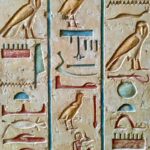India‘s Modi Government Replaces Country’s Name with Bharat in G20 Dinner Invite
Introduction
The Indian government, led by Prime Minister Narendra Modi, has caused controversy by replacing the name “India” with the Sanskrit word “Bharat” in dinner invitations sent to guests attending the Group of 20 (G20) summit. This move has led to speculation that the country’s official name may be changed. The invitation referred to Droupadi Murmu as the “President of Bharat” instead of the “President of India.” The decision has sparked a debate regarding the country’s identity and its historical and cultural associations.
The Significance of Bharat
India is officially recognized by two names – India and Bharat. However, the former is more commonly used domestically and internationally. Bharat is an ancient Sanskrit word that can be traced back to early Hindu texts. It is also used as a Hindi alternative for India. The decision to use Bharat in official communication reflects an attempt to reclaim India‘s Hindu past, according to officials from Modi’s Bharatiya Janata Party (BJP).
A Symbolic Shift and Historical Context
The BJP has long sought to remove names associated with India‘s Mughal and colonial history. The party has been accused of pursuing a nationalist agenda, aiming to transform the constitutionally secular India into an ethnic Hindu state. The renaming of landmarks, such as Aurangzeb Road and colonial-era avenues in New Delhi, has been met with protests and backlash in the past.
Erasing Colonial Influence
The decision to replace “India” with “Bharat” is another step taken by the Modi government to distance itself from the legacy of British colonial rule. Supporters argue that the name “India” was imposed on the country by British colonizers and is seen as a symbol of slavery. By embracing the term “Bharat,” the government aims to symbolically break free from this colonial influence and reassert its cultural identity and heritage.
A Historic Rejection or Inclusive Identity?
While the government’s move is celebrated by the BJP and its supporters, it has drawn criticism from opposition parties and skeptics. Critics argue that by completely discarding the name “India,” the government risks losing the brand value and recognition built up over centuries. Former Congress legislator Shashi Tharoor suggests that Indians should continue using both “India” and “Bharat,” emphasizing the historical significance and global recognition of the former.
An Ongoing Debate
Political Implications and Opposition Response
The renaming of India as Bharat has become a contentious issue, particularly ahead of the upcoming national elections in 2024. Opposition parties, including the Indian National Congress, have formed an alliance called the Indian National Developmental Inclusive Alliance (INDIA), aiming to challenge Modi’s ruling party. As a result, demands to officially rename India as Bharat have gained momentum among some officials within Modi’s party.
Constitutional Considerations
While there is no constitutional objection to calling India “Bharat,” as it is one of the country’s official names, the debate raises concerns about the government’s intentions. Some fear that a complete shift to using Bharat may reflect a broader cultural shift towards promoting a Hindu nationalist agenda, potentially undermining India‘s secular fabric.
Advice for the Government
As India grapples with this debate over its national identity, it is essential for the government to strike a balance between acknowledging historical roots and preserving the country’s inclusivity. While it is essential to recognize and honor India‘s rich cultural heritage, it is equally important to ensure that this does not erode the diverse fabric of Indian society. The government should consider embracing a dual identity that respects both “India” and “Bharat,” allowing these names to coexist and reflect the multi-faceted nature of the nation.

<< photo by Naveed Ahmed >>
The image is for illustrative purposes only and does not depict the actual situation.
You might want to read !
- Back to School: Reflecting on the Unofficial End of Summer
- Navigating the New Normal: Pioneering the First Day of School in Eastchester
- Navigating a New Normal: Eastchester Welcomes Students Back on the First Day of School
- A Beacon of Education: Celebrating Teachers’ Day in a Karnataka Village
- Woody Allen’s “Coup de Chance” Leaves Audiences Standing in Applause for Five Minutes
- Iconic Canadian Singer Gary Wright Passes Away at Age 80
- Unveiling the Sacred Thread: Exploring the Significance and Traditions of Raksha Bandhan 2023
- Punjabi Melody Maestro Surinder Shinda Bids Farewell at Ludhiana Hospital




